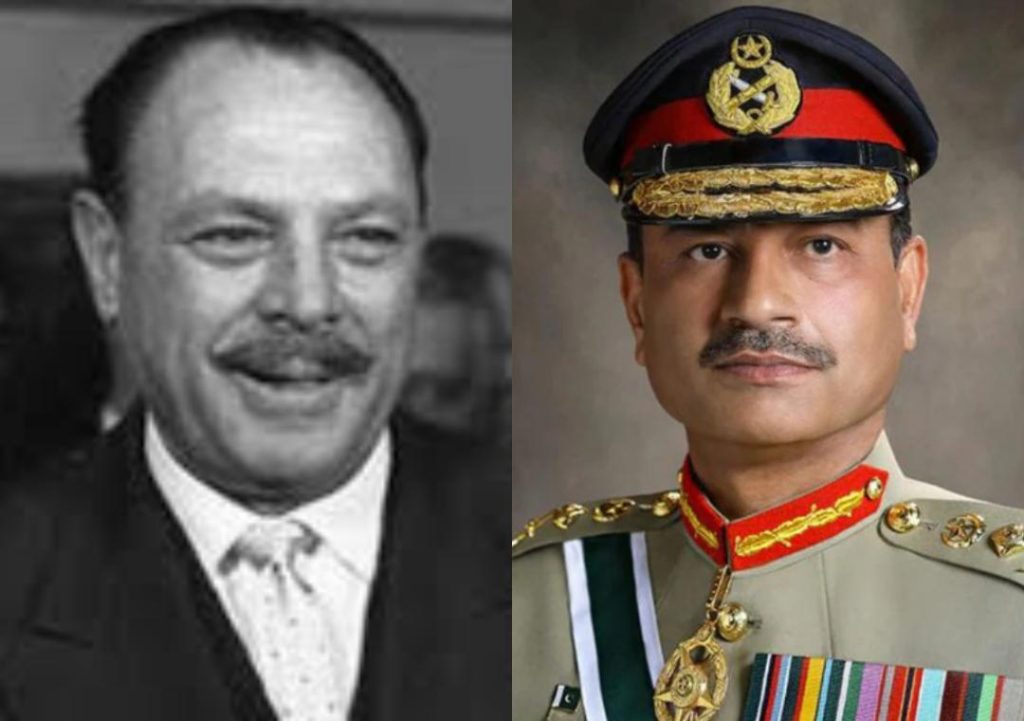
Last Time Pakistan Got a Field Marshal, the Country Slid into Dictatorship
On Tuesday, Pakistan Army Chief Asim Munir was promoted to the rank of Field Marshal, becoming only the second Pakistani to hold this prestigious title. While this might seem like a significant achievement for the military leader, it cannot help but evoke memories of the dark past when a similar promotion led to the country’s slide into dictatorship.
The last time Pakistan had a Field Marshal was in 1958, when then-Army Chief Ayub Khan was promoted to this rank by then-President Iskander Mirza. However, this promotion was not a routine event. Instead, it marked the beginning of a tumultuous period in Pakistan’s history, one that would ultimately lead to the country’s descent into dictatorship.
In 1958, Pakistan was still a young nation, struggling to find its footing after gaining independence from British colonial rule just a decade earlier. The country was plagued by political instability, economic woes, and a lack of national cohesion. Against this backdrop, Mirza, who was then the President of Pakistan, made the fateful decision to abolish the country’s Constitution and appoint Ayub Khan as the Chief Martial Law Administrator.
The move was met with widespread resistance from the political and civil society circles, who saw it as a power grab by the military. However, Khan, who had gained popularity among the military ranks for his leadership during the 1956 war with India, was able to consolidate his power and assume the presidency. He then promoted himself to the rank of Field Marshal, cementing his position as the de facto ruler of Pakistan.
Under Khan’s rule, Pakistan slid further into dictatorship. He imposed a strict military regime, muzzling the opposition and suppressing dissent. He also implemented a series of economic and social reforms, including the nationalization of industries and the creation of a centralized planning authority. While these measures were intended to modernize the country, they ultimately contributed to the country’s economic stagnation and political repression.
Khan’s rule was marked by human rights abuses, censorship, and the suppression of political dissent. He also launched a series of military campaigns against India, including the 1965 war, which ended in defeat for Pakistan. Despite these failures, Khan remained in power until his death in 1974, when he was succeeded by his handpicked successor, Zulfiqar Ali Bhutto.
The legacy of Ayub Khan’s rule continues to haunt Pakistan to this day. His military regime laid the groundwork for future dictatorships, and his economic and social reforms contributed to the country’s current economic woes. Moreover, his suppression of political dissent and human rights abuses set a dangerous precedent for future leaders, who have continued to exploit the country’s political instability for their own gain.
Fast forward to today, and Pakistan is once again facing a similar crisis. The country is struggling to find its footing in a rapidly changing world, and its political and economic institutions are under strain. The promotion of Asim Munir to the rank of Field Marshal has raised concerns about the country’s future trajectory.
While Munir has promised to uphold the country’s democratic institutions and work with the civilian government, his promotion has also been met with skepticism from political circles. Many are worried that he will follow in the footsteps of Ayub Khan, using his new title to consolidate power and suppress dissent.
In conclusion, while Asim Munir’s promotion to the rank of Field Marshal might seem like a significant achievement, it is also a reminder of the dangers of military intervention in civilian politics. The last time Pakistan had a Field Marshal, the country slid into dictatorship, and it is crucial that we learn from that history to avoid repeating it.



